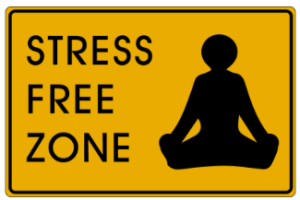The debate between nature and nurture and the effects they have on early development is an ongoing question. Some believe that a child’s development is based solely on their “nature,” or the traits and behaviors they are born with. Others, however, pose the argument that “nurture,” or the atmosphere, influences, and way of being raised is the main factor in shaping who the child becomes. Both sides of the argument present compelling evidence, making it difficult to come to a clear conclusion.
Everyone knows that physical traits are hereditary. You certainly cannot change the color of your eyes or the shape of your nose simply by the way you are raised, so who is to say that the same does not go for behavioral traits? This is one of the most profound and factually solid arguments posed by those who believe that nature trumps nurture in the most influential part of a child’s development. An example of this is that if two parents who both have a learning disability have a child, that child will also most likely have a learning disability as well. This child will have this trait regardless of how they are raised, simply because that is how they were born. Today, we do not have the technology needed to be able to test if behavioral traits are hereditary. This does not mean, however, that we never will be able to. Based on the rapid technological advances in today’s age, it would not be a far stretch to say that performing these types of tests may be possible in the near future.
both have a learning disability have a child, that child will also most likely have a learning disability as well. This child will have this trait regardless of how they are raised, simply because that is how they were born. Today, we do not have the technology needed to be able to test if behavioral traits are hereditary. This does not mean, however, that we never will be able to. Based on the rapid technological advances in today’s age, it would not be a far stretch to say that performing these types of tests may be possible in the near future.
On the other hand, nurture certainly has a significant role in a child’s development, especially in the early stages. This is apparent immediately if a newborn baby is not cared for and shown that they are loved in the first few days of life, they will not survive even if their body seems perfectly healthy. In this case, nurture completely trumps nature because the only thing failing was the way the baby was treated. There are cases where parents do not care whatsoever for their child, and in extreme cases these children are classified as “feral children.” A feral child is a child who has lived isolated from human contact from a very young age. They have no experience of human care, nurture, or social contact. In severe cases, these children’s behaviors can resemble those of wild animals because they are the only contact they have ever had. It seems like a valid conclusion that if a child whose only contact was with animals begins acting like animal, then nurture must trump nature. Certainly there was nothing in the DNA of the child that could have resulted in animalistic behavior, so it must have been the effects of nurture because what other explanation is there? There are endless possibilities of ways that a parent could raise their child. Parents could nurture and love their child, they could absolutely spoil them rotten, they could coddle them so they are forever dependent, they could neglect them leaving the child with trust and self esteem issues, and certainly hundreds of thousands of other environments and situations. Each environment a child is raised in will produce a different type of child based on how they are treated while young, which means that nature will fall second to nurture.
After researching the opposing sides of the nature vs nurture argument, I learned many facts and points that were continuously swaying my opinion between which factor I believed to be most important. After coming to a conclusion, I decided that both nature and nurture are tremendously important in the early development of a child. I believe that as a parent or any influential figure in a child’s life, you have a huge amount of influence over who that child becomes. If you nurture and care for them, hopefully they will be more successful in going through the normal stages of development. If you raise your child in a negative light or neglect them in any way, they will be unsuccessful in following these standard stages of development. I believe, however, that despite the influence you and the environment can have on a child’s development, this influence can only go so far. I believe that each person is born an individual, with different morals and different paths laid out for them. At the end of the day, you cannot change who you are. Nevertheless, here are still many factors that tie into the argument over nature versus nurture. If one or the other affects the developmental traits of a child, what explanation is there for twins who have different personalities? Twins have the same DNA, and most likely were raised in the same environment, and certainly sets of twins do not act the same. Even siblings in general, who have the same parents and more or less were nurtured in the same environment and raised in a similar way, why can siblings be absolute opposites of one another when it comes to behavior and development? This argument has been ongoing for hundreds of years, with even major philosophers and psychoanalysts such as Locke and Galton not even being able to come to a solid conclusion. Odds are that the debate will continue on as it has an infinite amount of factors and is for a large portion based off of personal beliefs and philosophies.



 When looking at Muscle & Fitness’s “
When looking at Muscle & Fitness’s “ someone in my family was excited, upset, or angry, even if we weren’t outright expressing these feelings. Belle would always seem to sense and react to our moods. When someone is upset, she lays her head on their lap and seems to be looking into their eyes, and if someone cries she whimpers and licks their face. It is like she is a person showing empathy and trying to cheer you up. When someone is afraid, she is immediately on guard-dog duty. My younger sister used to be afraid of thunderstorms, and Belle would sit up tall right between my sister and the nearest window, as if she wanted her to know she was protecting her. When someone is happy, Belle runs to find the nearest toy that she can find, whether it is one of her chew toys or a stuffed animal from mine or my sister’s rooms, and she brings it to you like a present. She doesn’t even like to play fetch, she just is excited to go run and find something to give to you and show that she is excited too. After going home for Thanksgiving break and remembering how excited Belle was when I got home and how upset she seemed when I said bye to my family and to her, it got me wondering about how dogs can sense what is going on with the people around them.
someone in my family was excited, upset, or angry, even if we weren’t outright expressing these feelings. Belle would always seem to sense and react to our moods. When someone is upset, she lays her head on their lap and seems to be looking into their eyes, and if someone cries she whimpers and licks their face. It is like she is a person showing empathy and trying to cheer you up. When someone is afraid, she is immediately on guard-dog duty. My younger sister used to be afraid of thunderstorms, and Belle would sit up tall right between my sister and the nearest window, as if she wanted her to know she was protecting her. When someone is happy, Belle runs to find the nearest toy that she can find, whether it is one of her chew toys or a stuffed animal from mine or my sister’s rooms, and she brings it to you like a present. She doesn’t even like to play fetch, she just is excited to go run and find something to give to you and show that she is excited too. After going home for Thanksgiving break and remembering how excited Belle was when I got home and how upset she seemed when I said bye to my family and to her, it got me wondering about how dogs can sense what is going on with the people around them. communications, they do understand your tone of voice. Your dog will easily be able to tell if you are speaking in an affectionate tone or an angry one.
communications, they do understand your tone of voice. Your dog will easily be able to tell if you are speaking in an affectionate tone or an angry one. As I discussed in my previous blog, “Keep Calm and Don’t Stress,” chronic stress can be harmful to both your mind and your body. Aside from the obvious short term mental effects stress has on you, extreme stress can have long term effects on your health such as a weakened immune system, high blood pressure, joint and back pains, and many others. That is why it is very important to make sure that you don’t let stress take a toll on your body or your mind. As young adults at a university with rigourous and demanding course loads and time consuming extracurriculars, we can not afford to be preforming at any less than 100%.
As I discussed in my previous blog, “Keep Calm and Don’t Stress,” chronic stress can be harmful to both your mind and your body. Aside from the obvious short term mental effects stress has on you, extreme stress can have long term effects on your health such as a weakened immune system, high blood pressure, joint and back pains, and many others. That is why it is very important to make sure that you don’t let stress take a toll on your body or your mind. As young adults at a university with rigourous and demanding course loads and time consuming extracurriculars, we can not afford to be preforming at any less than 100%. One popular method that many people turn to in order to reduce their stress levels is exercise. Aside from having overall benefits for your health, it also has some results that help melt away your stress. According to an article from the
One popular method that many people turn to in order to reduce their stress levels is exercise. Aside from having overall benefits for your health, it also has some results that help melt away your stress. According to an article from the  for all of us when I say that we have all felt overwhelmed at some point in our lives due to built up stress. This stress may come from a social situation, an issue with family, or extreme stress from schoolwork. I’m sure many of us have felt the mental strain that stress has on us, some may have even gotten to the point where it feels like our head is about to explode. Certainly, if you have reached that level on the stress meter, you have also experienced the effects that extreme stress has on your mood. What many people don’t consider, though, is what a strong negative impact extreme stress will have on your body.
for all of us when I say that we have all felt overwhelmed at some point in our lives due to built up stress. This stress may come from a social situation, an issue with family, or extreme stress from schoolwork. I’m sure many of us have felt the mental strain that stress has on us, some may have even gotten to the point where it feels like our head is about to explode. Certainly, if you have reached that level on the stress meter, you have also experienced the effects that extreme stress has on your mood. What many people don’t consider, though, is what a strong negative impact extreme stress will have on your body. Even if you do not realize it, the stress you experience plays a toll on your body in an alarming number of ways. Some of the most common results are to get a stomachache, to get a headache, and to experience aches and pains especially in your neck and back. So many people immediately think these
Even if you do not realize it, the stress you experience plays a toll on your body in an alarming number of ways. Some of the most common results are to get a stomachache, to get a headache, and to experience aches and pains especially in your neck and back. So many people immediately think these 
